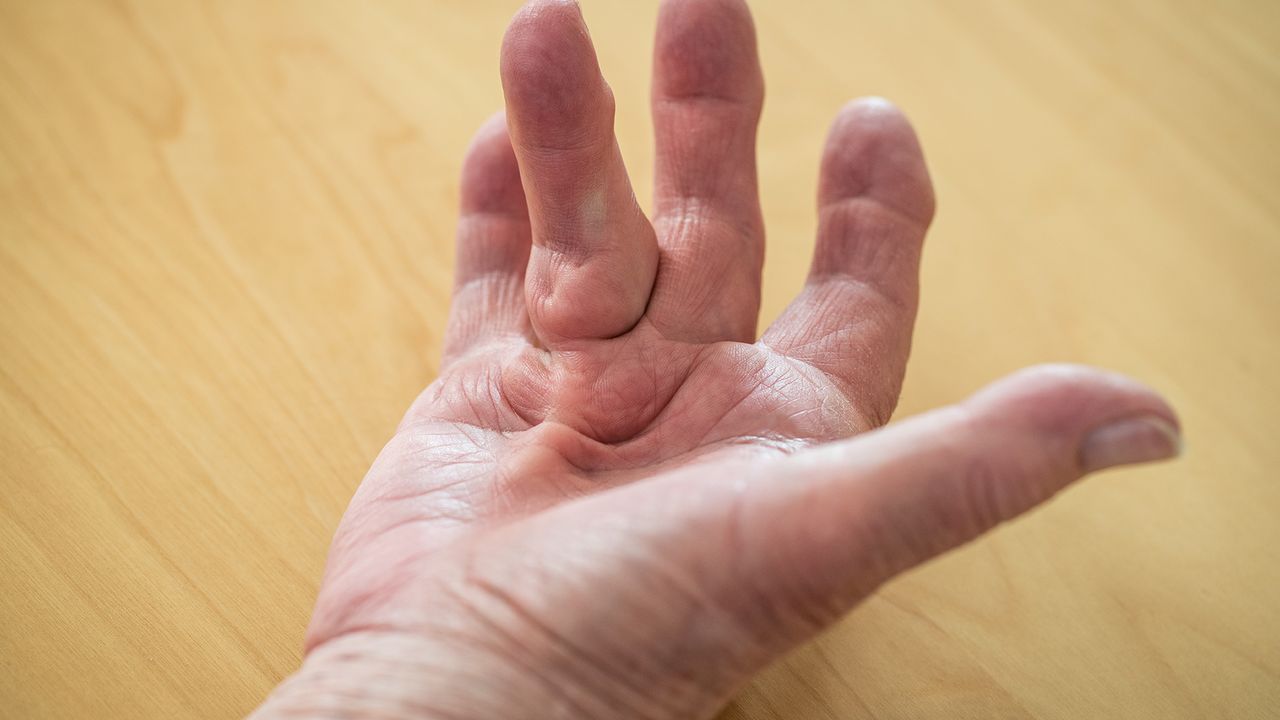Dupuytren’s Contracture: Understanding the Condition and Your Options

October 15, 2025
Noticing a painful bump in your palm, or your fingers slowly curling toward your palm, can feel strange—and even alarming. You may not remember injuring your hand, but something is clearly changing. If you’re struggling to straighten your fingers or grip objects, you might be experiencing Dupuytren’s Contracture.
While this condition is less widely known than arthritis or carpal tunnel syndrome, it’s not uncommon—especially among adults over 50. The good news? There are treatment options, and hand therapy can make a significant difference both before and after surgery.
What Is Dupuytren’s Contracture?
Dupuytren’s Contracture is a progressive condition that affects the fascia—a layer of tissue beneath the skin of your palm. Over time, this tissue thickens and forms tight cords, which gradually pull one or more fingers (usually the ring or little finger) into a bent position. The affected finger may not hurt, but it becomes difficult or impossible to straighten.
This isn’t caused by overuse or injury. It often develops slowly and without clear cause. However, it is more common in men, people of Northern European descent, and those with a family history of the condition.
Signs and Symptoms
- A firm lump or nodule in the palm
- Thickened skin or puckering
- Difficulty placing your hand flat on a surface or gripping a hard object, like a tool
- One or more fingers bending toward the palm (with or without pain)
- Reduced hand function over time
It’s important to note: the condition is not reversible with exercise alone, but therapy plays a key role in managing symptoms and preserving hand function.
What Are the Treatment Options?
Monitoring
In mild cases, where the contracture hasn’t progressed, a watch-and-wait approach may be recommended. During this phase, hand therapy can help maintain the use of your hand in your daily activities or reduce pain if you have it.
Non-Surgical Injections
For some, collagenase injections (enzyme-based treatment) may be used to weaken the tight cords. This option isn’t suitable for everyone, but it may help improve motion – permanently or temporarily.
Surgery
When the fingers are too contracted to function normally, surgery may be the best option. The goal is to release the tightened cords and restore as much motion as possible.
How Hand Therapy Helps
Whether you’re managing early symptoms or recovering from surgery, hand therapy plays a vital role in maintaining and restoring function.
At Hands for Living, your therapist may provide:
- Stretching and motion exercises to improve flexibility
- Splinting to maintain finger position and reduce contracture after surgery
- Scar management techniques to prevent stiffness
- Strengthening exercises once healing has progressed
- Education on protecting hand function day-to-day
Therapy is especially valuable after surgery, when guided rehabilitation can mean the difference between full use of the hand—or developing another contracture later on.
You’re Not Stuck with a Curled Hand
It may feel like a minor nuisance at first—but if left unmanaged, Dupuytren’s Contracture can interfere with everything from shaking hands to putting gloves on. Early diagnosis and support can make a big difference.
If you’ve noticed your fingers bending or your palm tightening, reach out. The sooner you take action, the more options you’ll have.